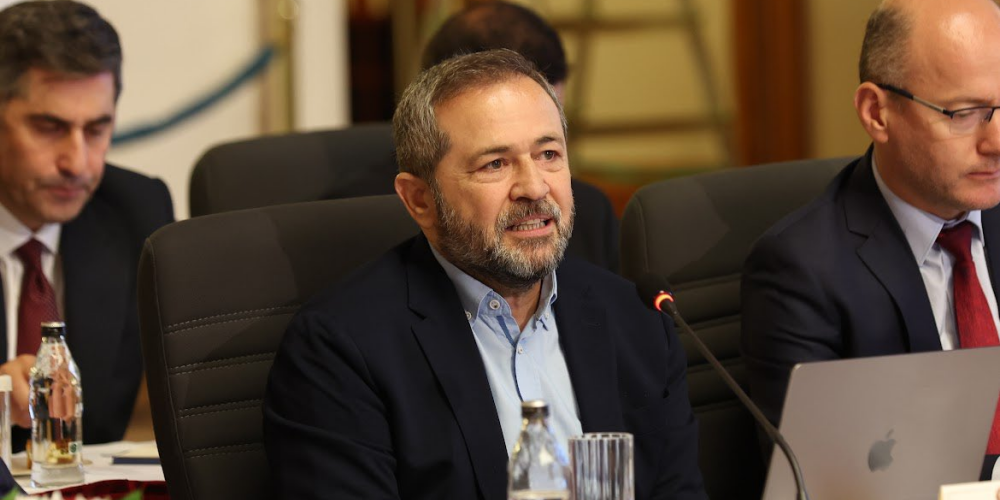
Ankara Institute Shares Roadmap for “Turkey without Terror” at the TBMM (Turkish Parliament)
Ankara Institute Director Hatem Ete, speaking at the TBMM National Solidarity, Fraternity, and Democracy Commission, emphasized that legal regulations should not be limited to disarmament but must also lay the foundation for democratic and peaceful steps.
Ankara – The National Solidarity, Fraternity, and Democracy Commission, established within the Grand National Assembly of Turkey (TBMM), continues to hear from various segments of society and non-governmental organizations as part of its goal for a “Turkey without terror.” Ankara Institute Director Hatem Ete, participating in the 12th meeting chaired by Parliament Speaker Numan Kurtulmuş, presented critical analyses and recommendations on the process.
Leading think tanks such as SETA, Dicle Social Research Center (DİTAM), and the Center for Middle Eastern Studies (ORSAM) also attended the meeting, sharing their views and suggestions.
“Society Sees This as Politics’ Social Responsibility Project”
In his speech, Ankara Institute Director Hatem Ete drew attention to the public perception of the process. “Society sees this issue as politics’ social responsibility project,” said Ete, noting, however, that there is a lack of trust in how the process is being managed. “There are those who think this issue is aimed at President Erdoğan’s re-election. When concrete developments occur, society will believe that this process can lead somewhere,” he stated, underlining the importance of tangible steps.
Emphasis on Legal Regulation and Democratization
Stating that legal regulations are one of the most critical steps to be taken, Ete argued that the scope of this regulation must be kept broad:
“The scope and dimension of a legal regulation are very important. The regulation should not be limited only to the disarmament of the PKK; it must also lay the foundation for democratic and peaceful steps.”
“It is Not Pragmatic to Integrate Turkey’s Process with the Syrian Timetable”
In his speech, Ete also touched upon the process’s relationship with regional dynamics, especially developments in Syria, arguing that Turkey must focus on its own priorities. He posed a critical question: “Will the process in Syria be seen as a precondition for the legal regulation, or will priority be given to ensuring the PKK lays down its arms, leaving the Syria file to time? I believe this is the question that will determine the fate of the process.”
Ete clarified his own view: “I find it more appropriate to realize that developments in Syria have their own rhythm and to prioritize concluding the issue within Turkey.” Given the diversity of actors involved in Syria, he added, “I do not think it is a politically correct or pragmatic stance to integrate the process in Turkey with the Syrian timetable.”
Overcoming Stagnation and the Role of the Commission
Pointing to the stagnation in the process over the last two months, Ete attributed it to disagreements between the state and the PKK over whether the disarmament and legal regulation phases should proceed simultaneously or sequentially. Warning that further stagnation could lead to many problems, he said, “I believe that actors who view this issue with a strategic dimension, beyond daily tactics, will intervene to overcome this stagnation.”
Hatem Ete concluded his remarks by emphasizing the future role of the Commission: “In this framework, the work the Commission will undertake in the coming period will be important.”
